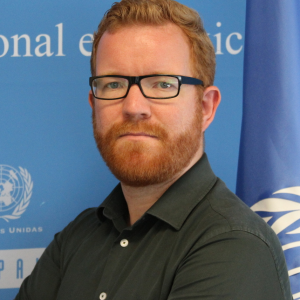Jamaican Economy Panel believes ambitious debt reduction targets should be postponed beyond 2027/28 Fiscal Year
28 May 2021
KINGSTON - Today, the Jamaican Economy Panel (JEP) published the second round of its monthly discussion focusing on fiscal policy in Jamaica.
The Jamaican Economy Panel is part of a partnership between the United Nations Resident Coordinator’s Office (UNRCO) and the Department of Economics at The University of the West Indies (UWI) Mona. The JEP brings together a select group of economic and public sector experts to address a monthly series of socioeconomic questions. These questions help to highlight relevant economic issues and shine a light on the collective wisdom of the experts who make up the panel.
Fiscal policy in Jamaica
During the second JEP discussion, panelists were asked about their perspectives on Jamaica’s current fiscal situation. Jamaica has gone through an impressive transformation, substantially reducing its debt between 2012 and 2019. COVID-19 caused a substantial increase in the debt-to-GDP ratio in 2020. Recognizing the challenging environment in which the country now finds itself, the panelists were optimistic about how the Government of Jamaica balances debt reduction with competing priorities.
However, when asked about the stated Government objective to bring the debt-to-GDP ratio down to 60% by the Fiscal Year 2027/28, the respondents were more skeptical. While they overwhelmingly support the 60% target, a substantial majority do not believe it is realistic or recommendable to reach this goal so soon. With the economy still recovering from the COVID-19 pandemic, there is too much uncertainty to achieve the transformation so soon.
Dr. Nadine McCloud, head of the Economics Department at UWI Mona and a co-founder of the JEP adds that “We cannot overstate the importance of reducing Jamaica's debt. However, the debt reduction's celerity should positively weigh the needs of the Jamaican people, particularly those who slipped into financially retrograde positions due to COVID-19.”
Finally, the JEP panelists were asked about the possibility of wealth taxes, responding to a discussion recently promoted by the Economic Commission for Latin America and the Caribbean (ECLAC) on its use in the post-COVID recovery[1]. This area was more contentious amongst the JEP panelists, although most respondents supported the concept, seeing it predominantly as a structural solution. A recurrent and progressive wealth tax would both increase government revenues and thus reduce the debt and support reducing economic inequality in Jamaica.
Reiterating the high level of economic inequality in Jamaica, Dr. Garry Conille, UN Resident Coordinator, stated: “Income inequality is a major challenge in Jamaica and the region on the whole, but it should be noted that wealth inequality is substantially greater than income inequality. If a recurrent wealth tax can be used to alleviate the socioeconomic situation of those most likely to be left behind, it could be a worthwhile solution.”
On the other hand, it should be noted that a substantial minority objected to the concept of wealth taxes, partly due to the institutional challenges of imposing such taxes, but also because some panelists believe that this may lead to wealth shaming.
The full results of this month’s discussion are available HERE.
[1] https://www.cepal.org/sites/default/files/publication/files/46809/S2100169_en.pdf.





